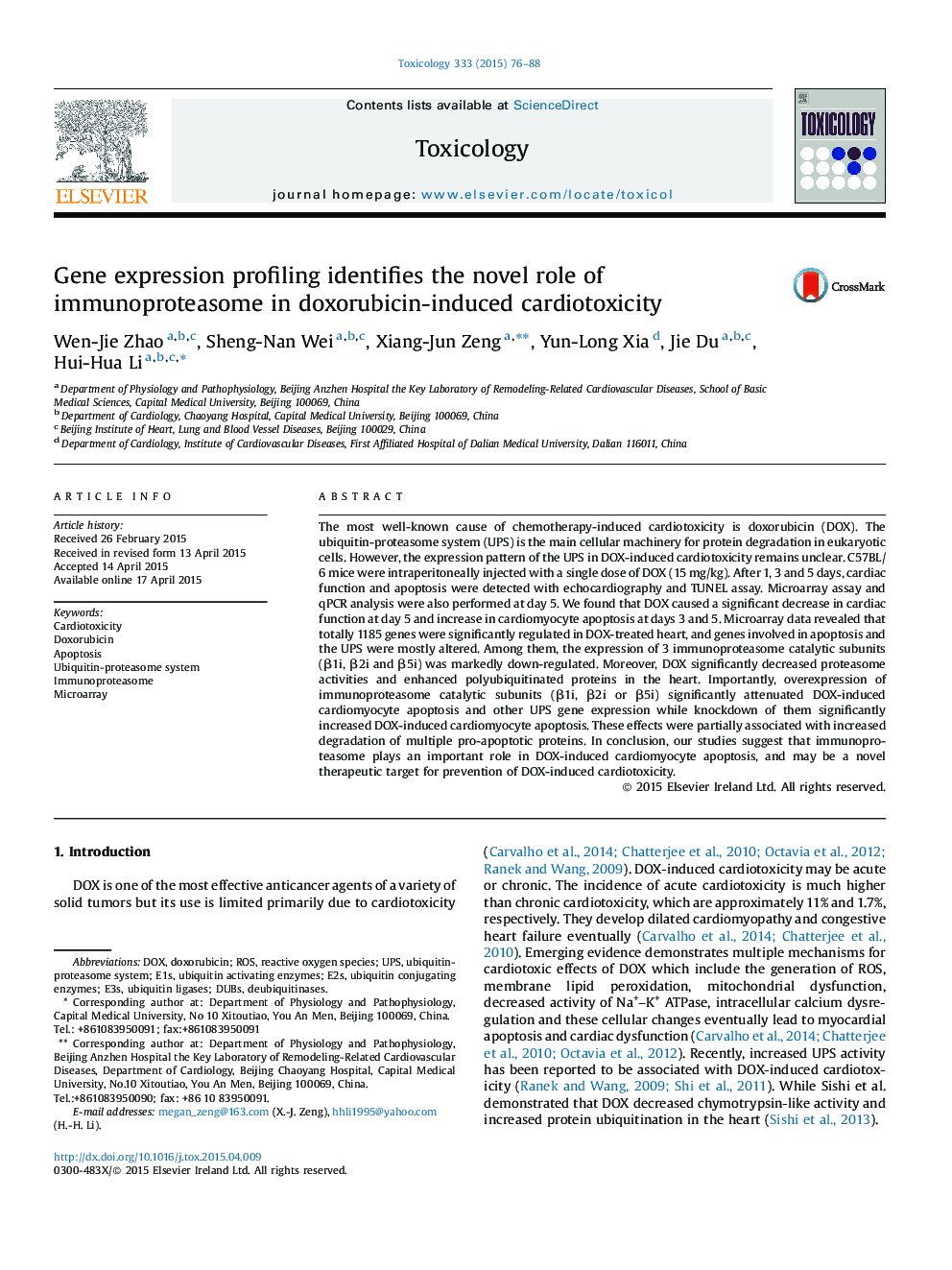| Article ID | Journal | Published Year | Pages | File Type |
|---|---|---|---|---|
| 5859030 | Toxicology | 2015 | 13 Pages |
Abstract
The most well-known cause of chemotherapy-induced cardiotoxicity is doxorubicin (DOX). The ubiquitin-proteasome system (UPS) is the main cellular machinery for protein degradation in eukaryotic cells. However, the expression pattern of the UPS in DOX-induced cardiotoxicity remains unclear. C57BL/6 mice were intraperitoneally injected with a single dose of DOX (15 mg/kg). After 1, 3 and 5 days, cardiac function and apoptosis were detected with echocardiography and TUNEL assay. Microarray assay and qPCR analysis were also performed at day 5. We found that DOX caused a significant decrease in cardiac function at day 5 and increase in cardiomyocyte apoptosis at days 3 and 5. Microarray data revealed that totally 1185 genes were significantly regulated in DOX-treated heart, and genes involved in apoptosis and the UPS were mostly altered. Among them, the expression of 3 immunoproteasome catalytic subunits (β1i, β2i and β5i) was markedly down-regulated. Moreover, DOX significantly decreased proteasome activities and enhanced polyubiquitinated proteins in the heart. Importantly, overexpression of immunoproteasome catalytic subunits (β1i, β2i or β5i) significantly attenuated DOX-induced cardiomyocyte apoptosis and other UPS gene expression while knockdown of them significantly increased DOX-induced cardiomyocyte apoptosis. These effects were partially associated with increased degradation of multiple pro-apoptotic proteins. In conclusion, our studies suggest that immunoproteasome plays an important role in DOX-induced cardiomyocyte apoptosis, and may be a novel therapeutic target for prevention of DOX-induced cardiotoxicity.
Keywords
Related Topics
Life Sciences
Environmental Science
Health, Toxicology and Mutagenesis
Authors
Wen-Jie Zhao, Sheng-Nan Wei, Xiang-Jun Zeng, Yun-Long Xia, Jie Du, Hui-Hua Li,
